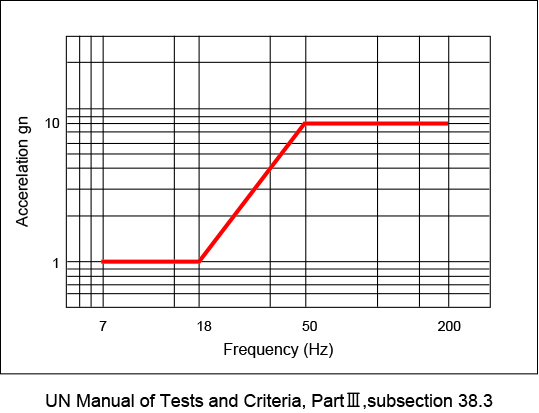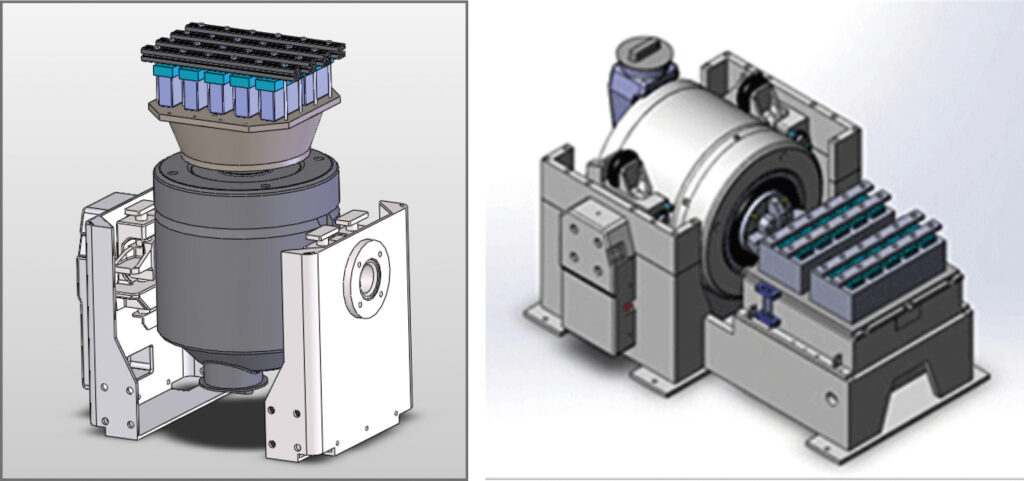Lithium battery UN transport test
Test overview
■ Purpose
Assuming vibration during transportation, to check for mass reduction, leakage, rupture, breakage, and ignition after the test
With the exception of fully discharged batteries, the open circuit voltage is confirmed to be at least 90% of the voltage immediately before the test.
The customer using the test laboratory is assumed to use a safety device and to use a system that immediately stops the test in the event of a battery malfunction.
■ Test conditions
Vibration frequency range: 7 Hz to 200 Hz
Acceleration level: 7 Hz to 18 Hz 1 gn constant/18 Hz to 50 Hz double amplitude 1.6 mm/50 Hz to 200 Hz 8 gn constant
Testing time: 3 hours in each direction
Vibration direction: 3 directions
In the latest version of UN38.3 issued in 2011, a condition for large batteries has been added to T3 and a maximum acceleration of 2 gn has been added for 12 kg or more. (8 gn for 12 kg or less).
UN Manual of Tests and Criteria, PartⅢ, subsection 38.3

Test state image

Memo
Facilities used
Vibration test system: i240/SA3M/H6
Vibration controller: K2 software Sine
Test time
6 hours/2 days

